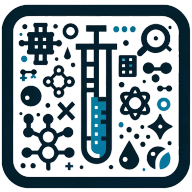Safety-sensitive industries are those where employees' actions can directly impact the safety of themselves and others. In these sectors, drug testing is not just a routine procedure, but a crucial part of maintaining a safe and productive work environment. This blog post will delve into the importance of drug testing in these industries, exploring its benefits, challenges, and the potential consequences of neglecting this vital practice.
Understanding Safety-Sensitive Industries
Safety-sensitive industries encompass a wide range of sectors, including transportation, construction, healthcare, and energy. Employees in these industries often operate heavy machinery, handle hazardous materials, or are responsible for the well-being of others. Consequently, their ability to perform their duties safely and effectively is paramount.
Drug use can impair an employee's ability to perform their duties, leading to accidents, injuries, or even fatalities. Therefore, drug testing is a critical component of safety protocols in these industries. It helps ensure that employees are not under the influence of substances that could compromise their performance and the safety of those around them.
Moreover, drug testing can also serve as a deterrent, discouraging employees from using drugs due to the potential consequences. It can also help identify employees who may be struggling with substance abuse, allowing employers to provide them with the necessary support and treatment.
The Benefits of Drug Testing
Drug testing in safety-sensitive industries offers numerous benefits. Primarily, it promotes a safer work environment. By identifying and addressing drug use among employees, companies can reduce the risk of accidents and injuries. This not only protects employees but also minimizes potential legal and financial repercussions for the company.
In addition to enhancing safety, drug testing can also improve productivity. Substance abuse can lead to decreased performance, absenteeism, and higher turnover rates. By addressing these issues, companies can maintain a more reliable and efficient workforce.
Furthermore, drug testing can help companies demonstrate their commitment to safety. This can enhance their reputation among clients, stakeholders, and the public, and can also contribute to a positive company culture.
Challenges and Solutions in Implementing Drug Testing
Despite its benefits, implementing drug testing in safety-sensitive industries can present several challenges. These include legal and ethical considerations, the cost of testing, and the potential for false positives.
However, these challenges can be addressed with careful planning and execution. For instance, companies can consult with legal experts to ensure their testing policies comply with relevant laws and regulations. They can also invest in high-quality testing methods to reduce the risk of false positives.
Moreover, while drug testing can be a significant investment, it can also lead to substantial savings in the long run. By reducing accidents, improving productivity, and avoiding potential legal issues, companies can achieve a positive return on their investment.
The Consequences of Neglecting Drug Testing
Neglecting drug testing in safety-sensitive industries can have serious consequences. Without this crucial safety measure, companies run the risk of accidents and injuries caused by impaired employees. This can lead to significant financial costs, including medical expenses, workers' compensation claims, and potential lawsuits.
Moreover, companies that neglect drug testing may face damage to their reputation. They may be seen as neglecting their duty to provide a safe work environment, which can lead to loss of business and difficulty attracting and retaining employees.
Finally, neglecting drug testing can also have a negative impact on company culture. It can lead to increased drug use among employees, lower morale, and a lack of trust in the company's commitment to safety.
Case Studies Highlighting the Importance of Drug Testing
Several case studies highlight the importance of drug testing in safety-sensitive industries. For instance, a transportation company that implemented a comprehensive drug testing program saw a significant decrease in accidents and an improvement in overall safety.
Similarly, a construction company that neglected drug testing experienced a series of accidents that led to costly lawsuits and damage to their reputation. After implementing a robust drug testing program, they saw a decrease in accidents and an improvement in their public image.
These case studies underscore the crucial role of drug testing in promoting safety and productivity in safety-sensitive industries.
The Future of Drug Testing in Safety-Sensitive Industries
As safety-sensitive industries continue to evolve, so too will the role of drug testing. Advances in technology are leading to more accurate and efficient testing methods, while changes in laws and societal attitudes towards drug use are shaping the legal and ethical landscape of drug testing.
Despite these changes, the importance of drug testing in safety-sensitive industries remains. It will continue to be a crucial tool for promoting safety, enhancing productivity, and maintaining a positive company culture.
The Unwavering Significance of Drug Testing in Safety-Sensitive Sectors
In conclusion, drug testing plays an indispensable role in safety-sensitive industries. It promotes safety, enhances productivity, and upholds the reputation of companies in these sectors. Despite the challenges it may present, the benefits of drug testing far outweigh the costs. As these industries continue to evolve, the importance of drug testing will remain, underscoring its crucial role in maintaining a safe and productive work environment.

